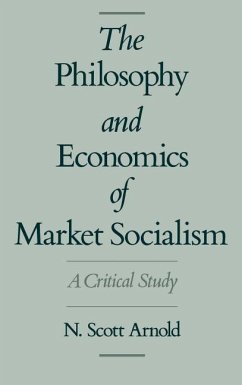In this closely reasoned examination of the case for market socialism, N. Scott Arnold argues that even the most defensible version of market socialism would be deeply flawed. Specifically, it would be responsible for systematic and widespread exploitation. The charge of exploitation, which is really a charge of injustice, has typically been made against capitalist systems by socialists. This book argues that it is actually market socialism - the only remaining viable form of socialism - that is systematically exploitative. Recent work on the economics of contracts and organizations is used to show that the characteristic organizations of a free enterprise system - the classical capitalist firm and the modern corporation - are structured in such a way that opportunities for exploitation among economic actors (e.g., managers, workers, providers of capital, customers) are minimized. By contrast, Arnold argues, in a market socialist regime of worker cooperatives, opportunities for exploitation abound. Arnold locates his comparative analysis of market socialism and the free enterprise system in the larger context of the capitalism/socialism debate. In his account of this debate - and in his contribution to it - he offers a distinctive and attractive vision of the relationship between economics and political philosophy. This vision clearly identifies the respective contributions that economics and political philosophy can make to the fundamental question of how social institutions are to be evaluated.
Hinweis: Dieser Artikel kann nur an eine deutsche Lieferadresse ausgeliefert werden.
Hinweis: Dieser Artikel kann nur an eine deutsche Lieferadresse ausgeliefert werden.







